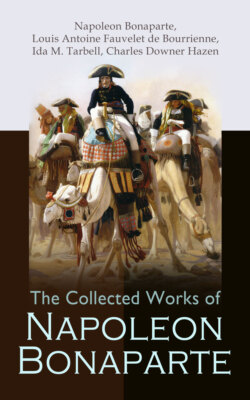Читать книгу The Collected Works of Napoleon Bonaparte - Charles Downer Hazen, Louis Antoine Fauvelet de Bourrienne - Страница 78
На сайте Литреса книга снята с продажи.
ОглавлениеMAXIM LXXIII.
Table of Contents
The first qualification in a general-in-chief is a cool head—that is, a head which receives just impressions, and estimates things and objects at their real value. He must not allow himself to be elated by good news, or depressed by bad.
The impressions he receives either successively or simultaneously in the course of the day, should be so classed as to take up only the exact place in his mind which they deserve to occupy; since it is upon a just comparison and consideration of the weight due to different impressions, that the power of reasoning and of right judgment depends.
Some men are so physically and morally constituted as to see everything through a highly-colored medium. They raise up a picture in the mind on every slight occasion, and give to every trivial occurrence a dramatic interest. But whatever knowledge, or talent, or courage, or other good qualities such men may possess, nature has not formed them for the command of armies, or the direction of great military operations.
NOTE.
“The first quality in a general-in-chief,” says Montécuculli, “is a great knowledge of the art of war. This is not intuitive, but the result of experience. A man is not born a commander. He must become one. Not to be anxious; to be always cool; to avoid confusion in his commands; never to change countenance; to give his orders in the midst of battle with as much composure as if he were perfectly at ease. These are the proofs of valor in a general.
“To encourage the timid; to increase the number of the truly brave; to revive the drooping ardor of the troops in battle; to rally those who are broken; to bring back to the charge those who are repulsed; to find resources in difficulty, and success even amid disaster; to be ready at a moment to devote himself, if necessary, for the welfare of the state. These are the actions which acquire for a general distinction and renown.”
To this enumeration may be added, the talent of discriminating character, and of employing every man in the particular post which nature has qualified him to fill. “My principal attention,” said Marshal Villars, “was always directed to the study of the younger generals. Such a one I found, by the boldness of his character, fit to lead a column of attack; another, from a disposition naturally cautious, but without being deficient in courage, more perfectly to be relied on for the defence of a country.” It is only by a just application of these personal qualities to their respective objects, that it is possible to command success in war.
